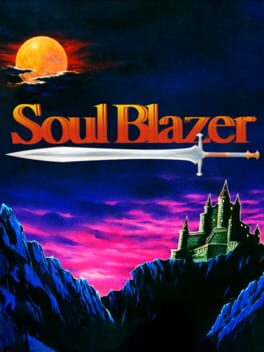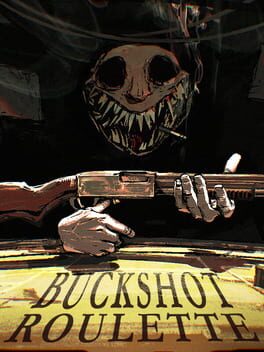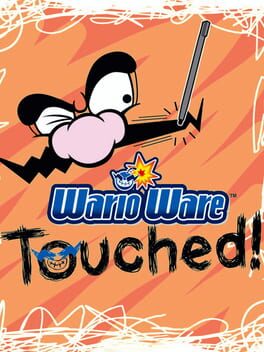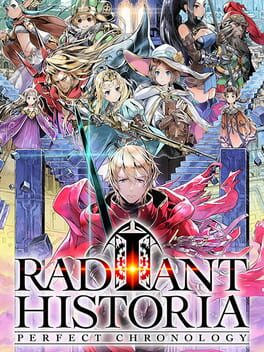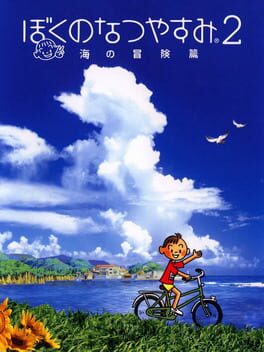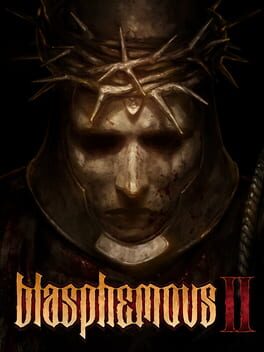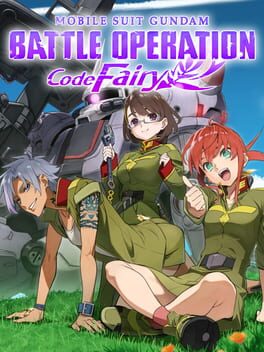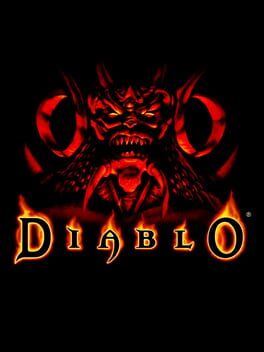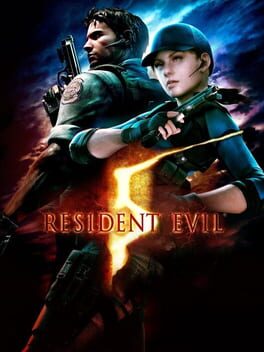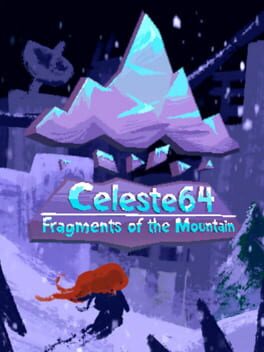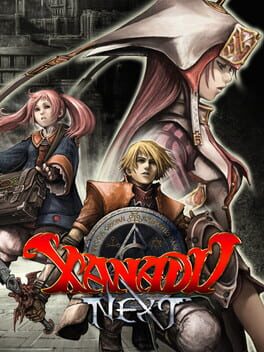1992
This is the first Quintet game that's really worked for me all around. The more streamlined arcadey approach to the ideas I thought were novel, but a little too cumbersome in Terranigma and Act Raiser, are presented in here in such a way that made me hard to put it down. Is it really as impressive or as important as either of those games? Not particularly, but the loop of mindlessly slashing your way through a dungeon with an ever-dwindling monster population, only to come back up for air and be greeted by an ever-growing town never stopped satisfying me until I hit credits.
2023
2004
A lot of the touch screen based microgames are quite good, though not too many of them stick out to me, and the ones that do are also in WarioWare Gold. The microphone based microgames actually suck though, and I think they knew that since there's hardly any by comparison. Out of all the singular gimmick-based WarioWare games I do think this one suffers the most from the lack of variety.
Radiant Historia starts extremely strong, with a puzzle-box-esque structure to the time travel that sets itself apart from Chrono Trigger despite all the noise to the contrary, and a combat system that has so much going on it made me feel like a genius once I learned to capitalize on all of the mechanics. However, by about the halfway point the cracks began to show. The story refuses to reveal many of its biggest mysterious until it's foreshadowed them on such a large variety of occasions there is no impact when they land. Likewise, the combat system lost its charm for me as things didn't develop into interesting directions, particularly highlighted by having a really bad XP curve and questionable skillsets that makes using anything other than a couple of party members kind of pointless. The added narrative content of the Perfect Chronology version also undermines what did work about the story the base game was trying to tell, particularly the ending of the base game which is so bold that undercutting it feels like it should be a crime. I still liked this game quite a bit, but the problem areas grated me enough that I couldn't love it wholeheartedly the way I wanted to from the opening hours.
Boku no Natsuyasumi 2 is a life affirming work of art. I went into this one well aware of its structure, that it took place across the month of August, and during that time you could relax and enjoy the small town you were placed into in whatever way you wanted. Due to this structure and my on-going journey of practicing mindfulness with respect to video games, I only allowed myself to play a maximum of 3 in game days per 1 actual day, and with the extra stipulation that I had to concentrate solely on the game. This may sound a bit silly, though as someone who pretty much always watches YouTube on a second monitor, or listens to podcasts while playing video games, this represented a very intentional exercise for me in order to appreciate what I was engaging with, and maybe fix my fucked up attention span in some way. From everything I knew, this was a game particularly well suited to this task as well, because I really wanted to soak up every little drop of the atmosphere and dialog that I could.
In the end I think this approach to playing Boku no Natsuyasumi 2 was extremely successful for me. I hung out on each screen, taking it all in. I turned over the character interactions, both slight and large, in my head during the forced gap between play sessions, allowing myself to develop a real sense of knowing these people on an intimate level. What would Uncle Genta be doing tomorrow? Would he still be struggling with the loss of his old profession, or did he have a revelation that lead him down a different path? Due to the nature of my play sessions and the nature of the ongoing lives of the cast, I sometimes wouldn't see someone in game for several real life days at a time, causing myself to legitimately miss them and wonder what they're getting up to. These small somber moments of longing to see them again couldn't have prepared me for the great sadness and emptiness brought about by the sudden ending, which drilled home just how much I cared each and every one of them, and the fact that I'd likely never see them again.
That is to say, at least not without spinning up another save file, which just feels wrong to me. No one should ever get to know every facet of every person in their lives, there's a certain beauty in knowing that you can't possibly know everyone's experience holistically. People fade in and out of our lives, only appearing briefly to give an update on themselves from their own perception. This game represents a series of those brief encounters, wrapped up in an experience that is brief in and of itself, even when I intentionally stretch it out over a longer period of time, as though trying to get the most out of my own similarly brief windows in time. There is no going back to summer vacation, there is no going back to 1975, there is no going back to Boku no Natsuyasumi 2 for me, and I've made my peace with that.
In the end I think this approach to playing Boku no Natsuyasumi 2 was extremely successful for me. I hung out on each screen, taking it all in. I turned over the character interactions, both slight and large, in my head during the forced gap between play sessions, allowing myself to develop a real sense of knowing these people on an intimate level. What would Uncle Genta be doing tomorrow? Would he still be struggling with the loss of his old profession, or did he have a revelation that lead him down a different path? Due to the nature of my play sessions and the nature of the ongoing lives of the cast, I sometimes wouldn't see someone in game for several real life days at a time, causing myself to legitimately miss them and wonder what they're getting up to. These small somber moments of longing to see them again couldn't have prepared me for the great sadness and emptiness brought about by the sudden ending, which drilled home just how much I cared each and every one of them, and the fact that I'd likely never see them again.
That is to say, at least not without spinning up another save file, which just feels wrong to me. No one should ever get to know every facet of every person in their lives, there's a certain beauty in knowing that you can't possibly know everyone's experience holistically. People fade in and out of our lives, only appearing briefly to give an update on themselves from their own perception. This game represents a series of those brief encounters, wrapped up in an experience that is brief in and of itself, even when I intentionally stretch it out over a longer period of time, as though trying to get the most out of my own similarly brief windows in time. There is no going back to summer vacation, there is no going back to 1975, there is no going back to Boku no Natsuyasumi 2 for me, and I've made my peace with that.
2023
This is in contention for the biggest improvement for a sequel ever in my book, and if anything deserved the glow up it was Blasphemous. The first game drew me in with its extraordinarily detailed pixel art representing a world filled with some of the coolest boss designs I could imagine. The problem is that the actual game was pretty much the barest bones metroidvania I've ever played, it just had nothing interesting going on mechanically. I wanted a sequel with some meat on its bones to back up its face, and Blasphemous II is exactly that.
From the first couple hours discovering the altarpiece system, the new platforming options, and the 3 weapons with distinct abilities in and out of combat, I was floored by just how much it was improved in every regard. Plus, they nailed having a satisfying parry, which is pretty much exactly what I'm looking for in a melee action game, so I was hooked from there. Not only are the mechanics greatly improved, but the level design is as well. Every new option in your toolkit is used in traversal, and never in a way that feels perfunctory. Everything works together to put you into that platforming flow state that perfectly compliments the deliberate action of the combat.
Really just an all around great game that stands toe to toe with some of the best in its genre, and is making me want to try out more sequels to games that I didn't fuck with, but had cool ideas. I really just want more iterative sequels like this in general, that build on the foundation laid down in such a perfect way, to make you really appreciate the stuff that was already good even more.
From the first couple hours discovering the altarpiece system, the new platforming options, and the 3 weapons with distinct abilities in and out of combat, I was floored by just how much it was improved in every regard. Plus, they nailed having a satisfying parry, which is pretty much exactly what I'm looking for in a melee action game, so I was hooked from there. Not only are the mechanics greatly improved, but the level design is as well. Every new option in your toolkit is used in traversal, and never in a way that feels perfunctory. Everything works together to put you into that platforming flow state that perfectly compliments the deliberate action of the combat.
Really just an all around great game that stands toe to toe with some of the best in its genre, and is making me want to try out more sequels to games that I didn't fuck with, but had cool ideas. I really just want more iterative sequels like this in general, that build on the foundation laid down in such a perfect way, to make you really appreciate the stuff that was already good even more.
Pretty much the platonic ideal of a licensed anime game. It's got a new story set in the UC timeline which is elevated by knowledge of the source material, it's got a structure that makes it feel in line with an anime (I'm a sucker for the OPs and EDs in games), and it's not an arena fighter. I'm not sure I 100% loved the tone and all the Zeon apologism, but what was here was pretty damn solid.
1996
Totally shocked at how smooth of an experience this was. Usually when I play a PC game from the 90s I just assume I’m gonna have to read a guide to get around a bunch of weird archaic shit, and that is not the case here. I was able to just hit the ground running and feed demon after demon into the wood chipper while vibing with the atmosphere that is completely singular.
I adored Final Fantasy VII Remake despite never hunkering down and playing through the original. Upon going back to Final Fantasy VII I was struck by how aimless it felt for large chunks, just kind of meandering from one weird experiment to another in a bizarre multimedia project mostly held together by the strength of its cast. That's not to say that the original FF7 is bad, it's no doubt a landmark work, but this inconsistent quality that pervades the experience cannot be overlooked.
Final Fantasy VII Rebirth begins as Cloud and friends enter into what is the most scattershot chunk of game from its namesake. In an attempt to capture that scattershot feeling that the original exudes just due to the circumstances of its creation, Rebirth hits on an even stranger balance. Seeing all the little diversions you'd expect of areas like the Gold Saucer with the modern level of polish you'd expect of a AAA video game somehow makes them less interesting. Yes, every minigame in this is technically more fun than they ever were in the original, though it comes at the expense of the novelty those minigames provided at the time. Each and every minigame is more fleshed out than it was previously, while also being featured alongside a bevy of new minigames and an avalance of Ubislop open world content, it's enough to make your head spin. Doubly so if this was the sort of stuff that never worked for you in the original FF7.
All of that is what loomed large in my mind while playing the game, but upon completing it most of that has been swept aside by an ending that left me with more thoughts than anything FF7 related has to date. I'm not going to get into spoilers here, but all of the bloat on display in Rebirth on top of a previous 40 hour outting with this cast, has endeared them to me at a level that few casts of any media have. Even if the story of Rebirth followed the events of FF7 to a tee, the emotional highs and lows would necessarily feel more extreme just due to this endearment. I do think that Rebirth is following the events of FF7 a little too closely at times, but that makes the deviations all the more impactful. That impact is felt strongly for me, I haven't been able to stop thinking about the implications of the last few hours of the game for the last day since I finished it, and even if there wasn't another game on the way to follow up on what I saw here, the metatextual elements alone are enough to chew on for a long time to come.
I love this game! it's messy as hell just like Final Fantasy VII should be, but that also means there are a lot of little gripes getting in the way of me wanting to experience this story again. Which is wild, because with a cast this strong, and combat this satisfying, it almost feels like you'd have to intentionally make huge chunks of the game bad to keep me away from it.
Final Fantasy VII Rebirth begins as Cloud and friends enter into what is the most scattershot chunk of game from its namesake. In an attempt to capture that scattershot feeling that the original exudes just due to the circumstances of its creation, Rebirth hits on an even stranger balance. Seeing all the little diversions you'd expect of areas like the Gold Saucer with the modern level of polish you'd expect of a AAA video game somehow makes them less interesting. Yes, every minigame in this is technically more fun than they ever were in the original, though it comes at the expense of the novelty those minigames provided at the time. Each and every minigame is more fleshed out than it was previously, while also being featured alongside a bevy of new minigames and an avalance of Ubislop open world content, it's enough to make your head spin. Doubly so if this was the sort of stuff that never worked for you in the original FF7.
All of that is what loomed large in my mind while playing the game, but upon completing it most of that has been swept aside by an ending that left me with more thoughts than anything FF7 related has to date. I'm not going to get into spoilers here, but all of the bloat on display in Rebirth on top of a previous 40 hour outting with this cast, has endeared them to me at a level that few casts of any media have. Even if the story of Rebirth followed the events of FF7 to a tee, the emotional highs and lows would necessarily feel more extreme just due to this endearment. I do think that Rebirth is following the events of FF7 a little too closely at times, but that makes the deviations all the more impactful. That impact is felt strongly for me, I haven't been able to stop thinking about the implications of the last few hours of the game for the last day since I finished it, and even if there wasn't another game on the way to follow up on what I saw here, the metatextual elements alone are enough to chew on for a long time to come.
I love this game! it's messy as hell just like Final Fantasy VII should be, but that also means there are a lot of little gripes getting in the way of me wanting to experience this story again. Which is wild, because with a cast this strong, and combat this satisfying, it almost feels like you'd have to intentionally make huge chunks of the game bad to keep me away from it.
Decided to give this one a go in split screen co op after playing it single player a few years back, and man, I ended up liking it a lot less. I think the encounters feel way too overtuned for two human players vs a human and an AI buddy, and it turned huge sections of the game into an absolute slog. The Wesker fights also stuck out as some of the worst bits in any of the games I’ve played in this franchise, they’re just really obtuse and more tedious than anything once you understand what it wants from you. I do still really fuck with the core gameplay, and there’s aspects of the co op that are great - the inventory management, the melee combos, and a lot of little organic moments of saving your partners ass at the last second, but overall I’m feeling a lot more down on it than I had in the past.
I think there's a reason that most 3D platformers are not all about precision platforming, and tend to be more about the exploration and discovery of an interesting 3D space. There are no doubt games that can tow that line and deliver on both, but they're few and far between.
For Celeste's first 3D outting I don't think that line is towed completely successfully, but what was delivered here is admirable nonetheless. Exploring the level on offer here and learning the ins and outs of the movement, which hews closer to the original Celeste than I expected, was delightful through and through. There are a handful of bursts of precision platforming that demand perfection, but with the generous checkpointing and fast respawns that you'd expect, they don't break up the collect-a-thon-esque flow too much. I think the cracks really begin to show in the hidden cassette tape stages where you're presented with a much more demanding platforming challenge backdropped by a black void evocative of Mario Sunshine. I think these sections feel the most like the precision platforming of the original game translated directly to 3D, and it feels a bit incongruous. Having to quickly move the camera as you dart from platform to platform adds an extra element that really does not compliment this style of platforming.
I think despite those handful of sections though this is a really tight, solid little game that I can see myself returning to on a whim just to soak in the vibes and feel the movement a bit, because it is smooth as hell and there aren't many 3D platformers that clear that bar.
For Celeste's first 3D outting I don't think that line is towed completely successfully, but what was delivered here is admirable nonetheless. Exploring the level on offer here and learning the ins and outs of the movement, which hews closer to the original Celeste than I expected, was delightful through and through. There are a handful of bursts of precision platforming that demand perfection, but with the generous checkpointing and fast respawns that you'd expect, they don't break up the collect-a-thon-esque flow too much. I think the cracks really begin to show in the hidden cassette tape stages where you're presented with a much more demanding platforming challenge backdropped by a black void evocative of Mario Sunshine. I think these sections feel the most like the precision platforming of the original game translated directly to 3D, and it feels a bit incongruous. Having to quickly move the camera as you dart from platform to platform adds an extra element that really does not compliment this style of platforming.
I think despite those handful of sections though this is a really tight, solid little game that I can see myself returning to on a whim just to soak in the vibes and feel the movement a bit, because it is smooth as hell and there aren't many 3D platformers that clear that bar.
2024
2005
2024
When I first played Persona 3 FES in 2020 during covid lockdown, it did not hit especially hard for me. In contrast, my time spent with Persona 3 Reload is something I think I’ll hold dear for many years to come. How can such a 1:1 remake of a game, played only a few years apart leave me with such a different takeaway? I’ve played a lot of remakes, and I’m not sure that this has ever quite happened to me before. Sure, there are some remakes that I prefer to the original, but usually they’re those that make such drastic changes that they feel like a completely different game, but Persona 3 Reload is more or less The Same Game as Persona 3 FES. I think this difference in personal reception is due to a mixture of things. Namely, the exact nature of the changes made in Reload, but also how much I’ve changed as a person in the last 4 years.
Every change here is made with exacting precision in order to maintain the more minimalistic approach to the modern Persona formula that is necessitated by the thematic and narrative needs of Persona 3. Nothing feels like a cynical change made just for the sake of smoothing the edges off for Persona 5 fans, and the game never approaches the maximalist cacophony of mechanics and style of P5. Everything seems to have been done to make Persona 3 Reload feel like its more of itself than any of its previous iterations could have been, and I think the changes allowed me to connect with the narrative on a much deeper level, despite it being largely the same as P3FES in that regard. This feels like one of the most thematically complete games in the genre, both in terms of gameplay and narrative, which is something I’ve come to value much more highly over the years since I played FES.
I’ve touched on this in previous reviews, but the last few years have been a time of rapid change for me. Both in terms of my taste in games, but also life at large. When I first played FES I was just starting to dip my toes into the wider world of JRPGs, coming off of my revelatory experiences with Dragon Quest XI S, and Persona 5 Royal, and the glut of free time I had as a result of being in covid lockdown. This was a time before I had explored the world of Shin Megami Tensei proper, or really understood the appeal of endlessly crawling dungeons, but now that I’ve had all those experiences the previously perceived “rough edges” of P3 have faded into the background for me. The endless slog of Tartarus, though improved in some ways in Reload, now feels like a necessary piece of the puzzle of the story being told, rather than something that’s getting in the way of the daily life stuff I was there for before.
On a more real note, 2020 was obviously an extremely depressing time for me, covid lockdown and the loss of a close friend to suicide exacerbated the crushing loneliness I already experienced due to difficulties with anxiety, and the future seemed utterly hopeless. Reading what I just wrote after finishing Persona 3 for the second time has me realizing that, of course I was not ready for what the game was trying to say at that time, because I was in the midst of living through it. In hindsight, and now being at a better place in my life, conquering my anxiety and having much closer relationships with people than I feel that I was capable of before, it’s obvious how powerful the message of this game is. There were many times while playing that I would relate to something a character was going through via an experience I’ve had in the last 4 years. How could I possibly find Junpei unilaterally annoying as I had in the past when I’ve shared in his experiences in the interim? There’s something that makes me feel a little angry that it took until I was almost 27 years old to find a common ground with a game made with a target audience of teenagers in mind. Why have I not been able to relate to these things before, is something wrong with the way I’ve lived my life? But I think that if Persona 3 has anything to teach the player it’s that there isn’t just one right way to live your life, there’s always going to be experiences you miss out on as you march towards the inevitable end. You just have to make the most of the time you have, and connect with others in the most authentic and vulnerable ways that you’re capable of, and I’m working towards that every day.
Every change here is made with exacting precision in order to maintain the more minimalistic approach to the modern Persona formula that is necessitated by the thematic and narrative needs of Persona 3. Nothing feels like a cynical change made just for the sake of smoothing the edges off for Persona 5 fans, and the game never approaches the maximalist cacophony of mechanics and style of P5. Everything seems to have been done to make Persona 3 Reload feel like its more of itself than any of its previous iterations could have been, and I think the changes allowed me to connect with the narrative on a much deeper level, despite it being largely the same as P3FES in that regard. This feels like one of the most thematically complete games in the genre, both in terms of gameplay and narrative, which is something I’ve come to value much more highly over the years since I played FES.
I’ve touched on this in previous reviews, but the last few years have been a time of rapid change for me. Both in terms of my taste in games, but also life at large. When I first played FES I was just starting to dip my toes into the wider world of JRPGs, coming off of my revelatory experiences with Dragon Quest XI S, and Persona 5 Royal, and the glut of free time I had as a result of being in covid lockdown. This was a time before I had explored the world of Shin Megami Tensei proper, or really understood the appeal of endlessly crawling dungeons, but now that I’ve had all those experiences the previously perceived “rough edges” of P3 have faded into the background for me. The endless slog of Tartarus, though improved in some ways in Reload, now feels like a necessary piece of the puzzle of the story being told, rather than something that’s getting in the way of the daily life stuff I was there for before.
On a more real note, 2020 was obviously an extremely depressing time for me, covid lockdown and the loss of a close friend to suicide exacerbated the crushing loneliness I already experienced due to difficulties with anxiety, and the future seemed utterly hopeless. Reading what I just wrote after finishing Persona 3 for the second time has me realizing that, of course I was not ready for what the game was trying to say at that time, because I was in the midst of living through it. In hindsight, and now being at a better place in my life, conquering my anxiety and having much closer relationships with people than I feel that I was capable of before, it’s obvious how powerful the message of this game is. There were many times while playing that I would relate to something a character was going through via an experience I’ve had in the last 4 years. How could I possibly find Junpei unilaterally annoying as I had in the past when I’ve shared in his experiences in the interim? There’s something that makes me feel a little angry that it took until I was almost 27 years old to find a common ground with a game made with a target audience of teenagers in mind. Why have I not been able to relate to these things before, is something wrong with the way I’ve lived my life? But I think that if Persona 3 has anything to teach the player it’s that there isn’t just one right way to live your life, there’s always going to be experiences you miss out on as you march towards the inevitable end. You just have to make the most of the time you have, and connect with others in the most authentic and vulnerable ways that you’re capable of, and I’m working towards that every day.
This might be the best game in the entire franchise, if not for the fact it has maybe the worst story in the entire franchise. It feels to me like they had a basic idea for what they wanted to do with the game on a thematic level, but then had to contort it to fit it into the new setting, and pad it to hell and back in order to make the game work better as a JRPG with all this incredible side content. Yet, even with all that padding there are several characters that aren't fleshed out in a meaningful way, plot threads that don't get followed up on, both from this game and Gaiden (which was written after IW fwiw), and hardly enough of the mindblowing end-of-chapter cliffhangers that the series is known for to keep me engaged throughout the middle of the game.
All that being said, I still did really really enjoy Infinite Wealth. I don't think I've ever had quite as much fun just hanging out with a JRPG party as I did in this game. The addition of the Bond Bingo system, which adds a ton more conversations for you to get to know every character better, on top of the previously established Drink Link and Table Talk systems made for huge chunks of the game where I was able to just walk around the city and get to know my party members in a supremely deep way. The 2 completely new party members they added are the highlight of Ichiban's half of the game for me too, both of them have satisfying arcs and are just people I would want to hang out with tbh. You also get to see new sides of characters from LAD7 which was delightful, even if most of them get kind of sidelined in the main plot.
The side content here is some of the best in the franchise, and I think a lot of that comes from the combat being legitimately incredible now so it feels less tedious. As much as I loved LAD7, and most of the previous games, combat has never been the strong suit for LAD. It's usually serviceable, and fights end quick so it never distracts you for too long, but in 7 the fights did last too long, which lead to me absolutely dreading any sort of encounter pretty quickly. I won't say that the combat in Infinite Wealth really goes any quicker than in the previous game, though due to all the additions they made to the mechanics it's far more engaging than before, which makes me not feel that length at all. I was legitimately seeking out fights, for maybe the first time in the entire series, which is a hell of an accomplishment. Like I said, this makes the already top-tier side content even better, because now when I'm running from place to place for a substory, I actually like getting in a random encounter, and for the bits of side content that are entirely focused on the combat (dungeons, part-time hero) I'm also all-in in a way I've never been. The big side quest for Kiryu, the bucket list, not only reminded me of all the older games in a way that made me want to replay literally all of them, but also had more moments that made me shed a tear than the main story did, by a lot.
In a similar vein to LAD5, I do like this big messy overambitious game a lot, but I hope that this isn't the direction the franchise is going to take overall. At least not at the expense of the more intimate, dense, and tighter games that made me fall in love with Like a Dragon.
All that being said, I still did really really enjoy Infinite Wealth. I don't think I've ever had quite as much fun just hanging out with a JRPG party as I did in this game. The addition of the Bond Bingo system, which adds a ton more conversations for you to get to know every character better, on top of the previously established Drink Link and Table Talk systems made for huge chunks of the game where I was able to just walk around the city and get to know my party members in a supremely deep way. The 2 completely new party members they added are the highlight of Ichiban's half of the game for me too, both of them have satisfying arcs and are just people I would want to hang out with tbh. You also get to see new sides of characters from LAD7 which was delightful, even if most of them get kind of sidelined in the main plot.
The side content here is some of the best in the franchise, and I think a lot of that comes from the combat being legitimately incredible now so it feels less tedious. As much as I loved LAD7, and most of the previous games, combat has never been the strong suit for LAD. It's usually serviceable, and fights end quick so it never distracts you for too long, but in 7 the fights did last too long, which lead to me absolutely dreading any sort of encounter pretty quickly. I won't say that the combat in Infinite Wealth really goes any quicker than in the previous game, though due to all the additions they made to the mechanics it's far more engaging than before, which makes me not feel that length at all. I was legitimately seeking out fights, for maybe the first time in the entire series, which is a hell of an accomplishment. Like I said, this makes the already top-tier side content even better, because now when I'm running from place to place for a substory, I actually like getting in a random encounter, and for the bits of side content that are entirely focused on the combat (dungeons, part-time hero) I'm also all-in in a way I've never been. The big side quest for Kiryu, the bucket list, not only reminded me of all the older games in a way that made me want to replay literally all of them, but also had more moments that made me shed a tear than the main story did, by a lot.
In a similar vein to LAD5, I do like this big messy overambitious game a lot, but I hope that this isn't the direction the franchise is going to take overall. At least not at the expense of the more intimate, dense, and tighter games that made me fall in love with Like a Dragon.
